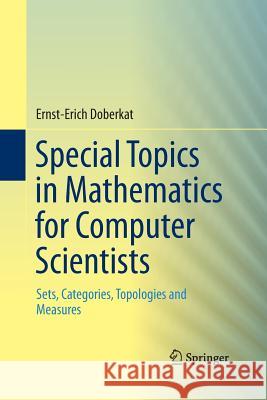Special Topics in Mathematics for Computer Scientists: Sets, Categories, Topologies and Measures » książka
topmenu
Special Topics in Mathematics for Computer Scientists: Sets, Categories, Topologies and Measures
ISBN-13: 9783319368696 / Angielski / Miękka / 2016 / 719 str.
Kategorie:
Kategorie BISAC:
Wydawca:
Springer
Język:
Angielski
ISBN-13:
9783319368696
Rok wydania:
2016
Wydanie:
Softcover Repri
Ilość stron:
719
Waga:
1.01 kg
Wymiary:
23.39 x 15.6 x 3.76
Oprawa:
Miękka
Wolumenów:
01
Dodatkowe informacje:
Wydanie ilustrowane











